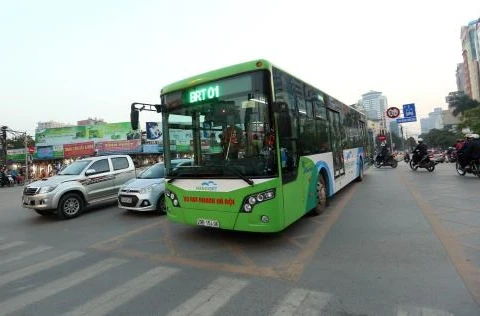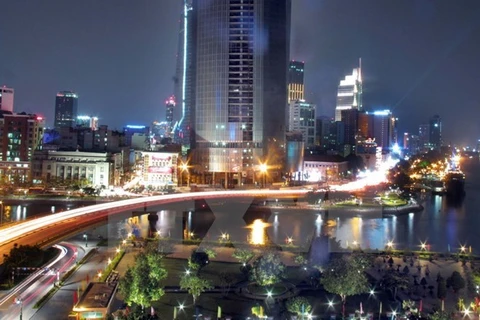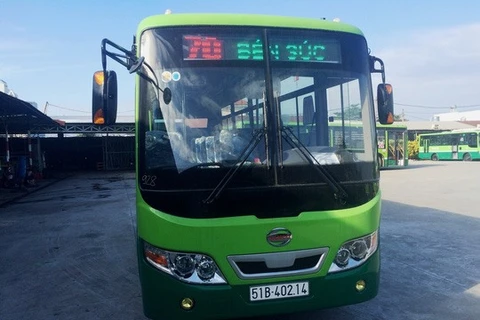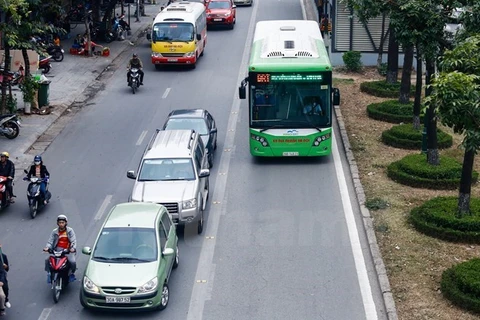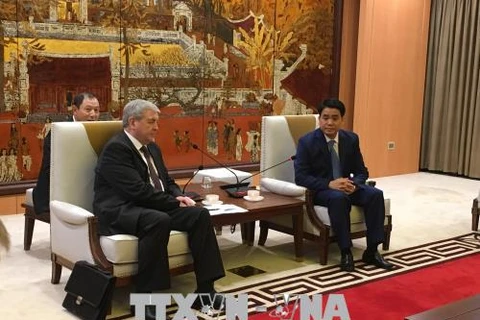Hanoi (VNA) – Vietnam needs to set a clear vision and plan to achieve its goals of developing smart public transportation, and study successful cases from countries that are world leaders in this development, according to international experts.
In the strategy for public transportation development to 2020, with orientations towards 2030, Vietnam set to make public transportation a preferable choice in tandem with controlling private vehicle growth and upgrading the quality of urban transportation.
Like many other Asian nations, Vietnam is dealing with rapid urbanization. By 2017, 40 percent of the nation’s 90-million population lived in urban areas. The figure is expected to reach 50 percent by 2025.
“Swedish innovation and expertise can be of great value when Vietnam is looking for sustainable solutions to challenges amid its growing urbanization, particularly in transport,” said Swedish Ambassador to Vietnam Pereric Hogberg.
The diplomat attended the recent roundtable discussion in Hanoi on “Fostering efficient operation and management of public transport: sharing successful experience of Sweden in emerging countries”.
The event was organised on the occasion of the Vietnam visit of the Swedish Sustainable City Delegation, which included ABB, Erisson, Volvo Buses, Axis Communications, Volvo Cars and Roxtec.
The Swedish companies had discussion with several public and private stakeholders in the public transport and urban development sector on how Vietnam can increase urban ridership in public transport, ensure urban environment is safe and make use of the latest technologies available in ITS/IoT and eMobility.
General Director of ABB Vietnam Brian Hull quoted Vietnam’s Ministry of Construction as saying the urbanization rate in Vietnam has increased from 19.6 percent with 629 urban areas in 2009 to 37.5 percent with 813 urban areas in 2017.
As in many other developing countries, Vietnam’s urbanization process causes many difficulties and challenges, particularly in social infrastructure, land use, incomprehensive development of transport and urban planning, Brian Hull said.
ABB offers solutions across the entire technology value chain, he said, adding “We are keen to bring even more of our technologies to Vietnam and support the development of sustainable urbanization and smart transportation in Vietnam in particular.”
Marie-Helene Mansard, Head of Regional Business Development, Axis Communications South Asia Pacific said, the company provides cameras for smart traffic lights.
“Smart traffic lights can turn red, yellow or green automatically depending on the traffic loads on the road.”
The system has been implemented in the Central city of Da Nang, she said, adding that Vietnam should expand the system to help address traffic situation in big cities.
“We need to raise the awareness of this technology, to make people know that it is existing and working and can be used effectively in Vietnam.”
The strong development of the Bus Rapid Transport (BRT) was also mentioned as a solution.
BRT was first initiated by Hanoi as the capital city has set to create a smart and civilised public transportation image.
Jan Vandooren, Urban Mobility Director of the Volvo Buses highlighted BRT system as the most optimal transportation mode in the urban environment. The system has been introduced to more than 200 countries in the world.
 Jan Vandooren, Urban Mobility Director of the Volvo Buses in an interview with VNA reporter (Source: VNA)
Jan Vandooren, Urban Mobility Director of the Volvo Buses in an interview with VNA reporter (Source: VNA) “BRT have high capacity and dedicated length. BRT buses can transport up to 200 people and run at the maximum speed in the city,” he told Vietnam News Agency.
He also pointed to the advantages of the BRT system over other transportation modes, such as light trains or metro lines in terms of investment cost and quicker turn-over.
“Investment cost in BRT makes up only five percent of metro investment. The line can be implemented within 15 months after making decision,” he said.
“In order to make BRT attractive to passengers, you need to have a big enough system to make passengers feel comfortable to use it.”
He advised Hanoi to have a separate, specific bus association working on BRT.
“Land is limited in the city, this is exactly where political courage is needed” to decide which transport mode to be given priority, he said.
Vietnam has seen significant improvement in the transport system, with over 1,000km of highways and a safe and convenient network of public airports, seaports.-VNA
VNA



